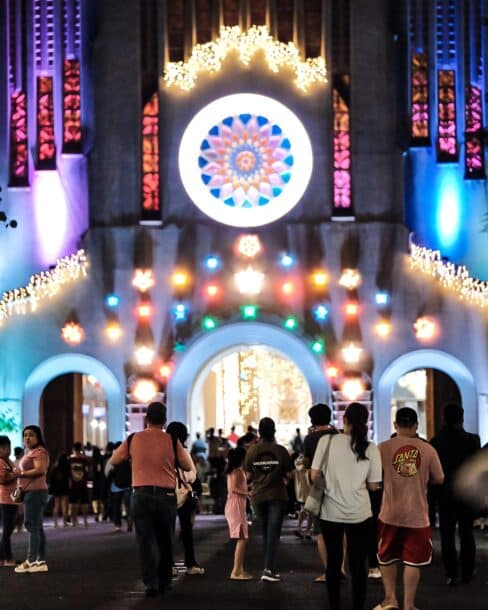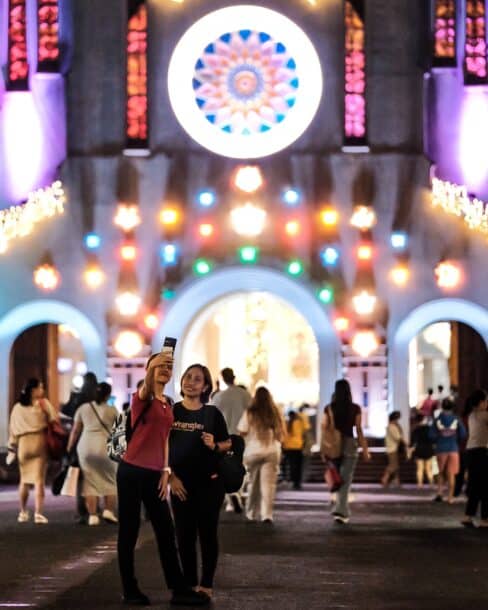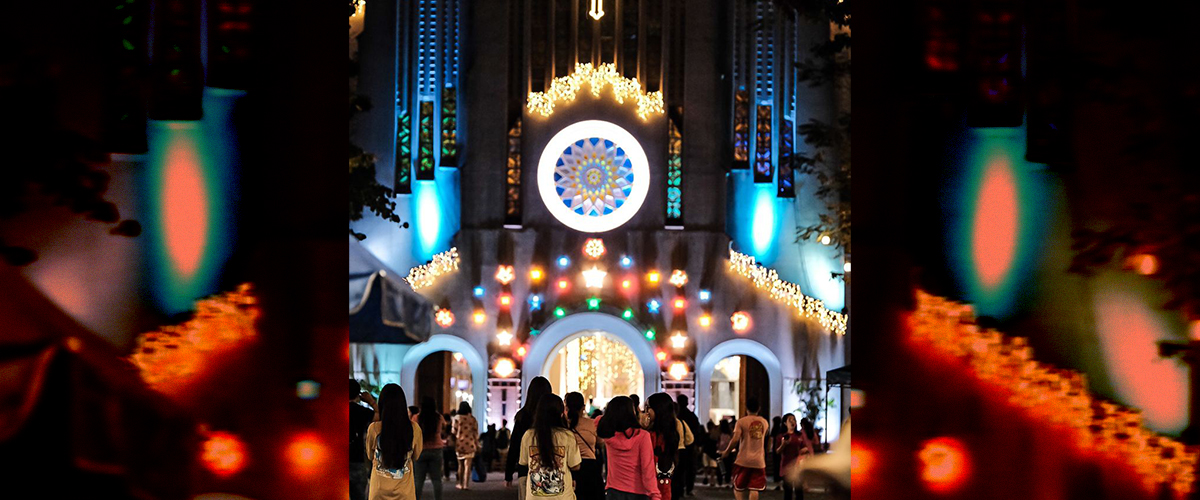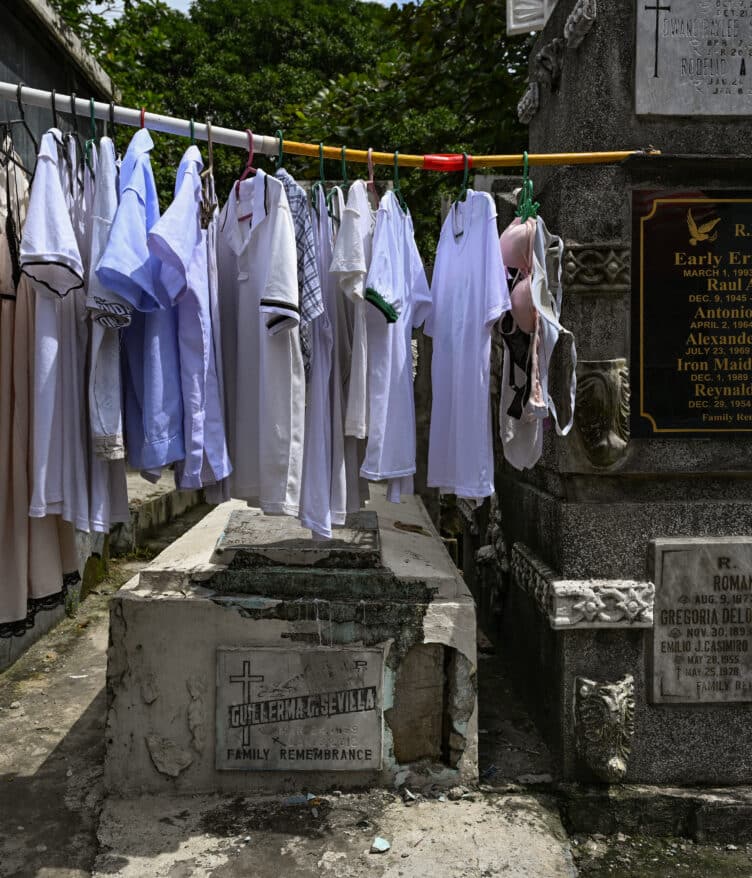FILIPINOS have begun counting down to Christmas since the start of “Ber” months, and one indication that the most anticipated and joyous day of the year is near is the beginning of the traditional Simbang Gabi in the Philippines.
Simbang Gabi is a series of evening or early dawn masses, starting Monday, December 16, to December 24. The final mass on Christmas Eve is called Misa de Gallo, the Spanish term for “Rooster’s Mass.”
The nine-day Simbang Gabi has been part of Filipinos’ Christmas traditions even before millennials and Gen Zs were born. But how did this practice begin before it evolved into one of the most prominent Christmas customs in the country?
Simbang Gabi in PH
It is believed that the Simbang Gabi tradition among Filipinos began in the 1600s during the colonization of Spaniards who brought Christianity to the Philippines.
At the time, the idea was to give Filipino farmers a chance to attend church masses before they tended to their fields early in the morning to avoid extreme heat. These masses were typically celebrated as early as 4 a.m. to usher in the birth of Jesus.
It was a way for church leaders to compromise with Filipino farmers who would still attend novenas at night, which were customary during the Christmas season, despite being tired from working in the field all day.
This religious practice was passed down from one generation to another, which is why it remains a popular Christmas tradition among Gen Zs. Today, young Filipino individuals do not only attend Simbang Gabi with their families but also with their friends, schoolmates, colleagues, and even romantic partners.
The schedule for Simbang Gabi across the country depends on parishes but it can start as early as 7 p.m. for evening masses.
A way to express faith, gratitude

Despite being tired from their office and school work, several Gen Zs told the republicasia team that they still attend Simbang Gabi because this is their way to express their faith and gratitude to God.
“It’s a meaningful way to reflect on His blessings, prepare spiritually for Christmas, and show devotion through a cherished tradition,” John Derick Francisco, an 18-year-old civil engineering student, shared with republicasia. “It’s both a personal act of faith and a heartfelt thanksgiving.”
Marketing student Kay-Ann Mae Leron, 19, said that she attends Simbang Gabi to show her faith and thank God for all the “blessings” and “guidance” He has given her.
For 18-year-old electronics engineering student Brian Joseph Legaspi and 18-year-old nursing student Elaiza Mae Santos, attending Simbang Gabi has been part of their Christmas celebrations handed down to them by the elders in their families.
“I grew up in a family that taught me the purpose of attending Simbang Gabi is to show faith and express gratitude to God,” Santos said.
Meanwhile, psychology student Christina Dela Cruz, 19, and accountancy student Nicole Galitane, 19, said they practice the Simbang Gabi tradition to ask for a wish.
It is believed that when a person completes the nine-day masses, their wish will be fulfilled. Whether or not their wishes are granted, these young individuals would still attend Simbang Gabi as it is part of their Christmas tradition and faith in God.
“It is the only time I can go to church that frequently and deliberately express my gratitude to Him. Aside from those reasons, I also believe that if I complete the Simbang Gabi my wish will come true,” said Dela Cruz.
Galitane, on the other hand, stressed, “Main purpose ko talaga kung bakit ako nagsisimba ay para mag-wish at magpasalamat sa mga blessings na natanggap ko throughout the year.”
Significance of Simbang Gabi

But more than hoping that their wishes would come true, these Gen Z students believe that continuously attending Simbang Gabi is a way for them to keep the decades-old tradition alive.
“[This is] to preserve the festive and holy celebration [that leads to] the birth of Jesus Christ,” said Legaspi.
Galitane, meanwhile, said, “Hindi kumpleto ang Pasko kung walang Simbang Gabi. Naging tradisyon na rin ng mga tao, Katoliko o hindi, ang pagsisimba para magpasalamat at magbakasakaling matupad ang kahilingan [nila].”
Simbang Gabi also helps the youth to connect more with God and their cultural identity as Filipinos.
“It’s been a tradition, and traditions must be continued. I also think that it’s a way for us to be more connected to Him,” according to Dela Cruz.
Francisco highlighted, “It connects us to Filipino culture, strengthens community bonds, and nurtures spiritual growth. It teaches discipline, gratitude, and unity, ensuring this meaningful tradition is passed on to future generations.”
Santos agreed with Francisco and said that the nine-day tradition is a testament to their “deep faith” and highlights how “unique” Filipino Christmas celebrations are.
“Additionally, Simbang Gabi strengthens relationships with family, friends, and loved ones, fostering deeper connections and unity within the family,” she added.
Christmas wishes
While attending Simbang Gabi is not for the fulfillment of a person’s wishes, perhaps nothing is wrong with asking for a request in their prayers.
Asked about their Christmas wishes, the college students said they hope for nothing but peace, happiness, unity, and success in the career paths they are pursuing.
“In a world filled with challenges, I hope for stronger relationships within families, communities, and nations, guided by faith, love, and compassion,” Franciso said.
Santos, on the other hand, shared, “This Christmas, I hope that everyone receives what they truly desire in life and finds purpose, peace, and joy this year. I also wish that we achieve the degree we are working hard for.”
Legaspi hopes 2025 will be “welcoming, peaceful, and full of joy for everyone.” Dela Cruz’s wish is for her family to “prosper” and have “a healthy and long life.”
Leron, meanwhile, said she wishes to celebrate Christmas with her family and boyfriend and achieve good grades next year.
So how about you? What will you wish for?
How useful was this post?
Click on a star to rate it!
Average rating 0 / 5. Vote count: 0
No votes so far! Be the first to rate this post.
We are sorry that this post was not useful for you!
Let us improve this post!
Tell us how we can improve this post?








